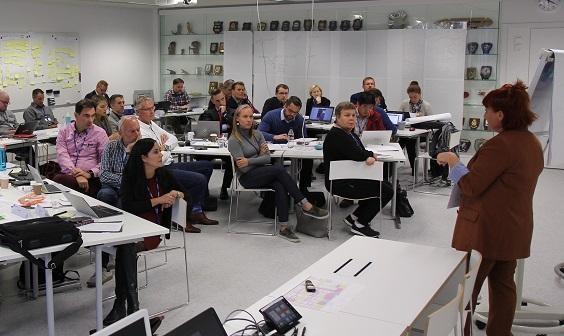The NATO-UN POC Course 2021 fully online
FINCENT is organizing the Approaches to Protection of Civilians in NATO and UN Peace Operations (NATO - UN POC) again this May. This is the third iteration of the course which combines the NATO and UN perspectives on the topic of Protection of Civilians. The aim of the NATO - UN POC course is to develop a practical understanding among civilian and military participants of the role of the UN and NATO as protection actors in operations. The last courses have fostered excellent dialogue, exchanges and understanding between the participants from various of military and civilian backgrounds. The third iteration faced challenges in the form of the global COVID-19 pandemic, but now, after careful preparation and planning, the course has been taken fully online.

The course focuses on how to protect civilians from threats of physical violence, including harm from their own actions. The course also enhances the military’s understanding of how military options impact civilians, and how the military can support other non-kinetic actions to minimize the negative impacts of conflict on civilians. Other outcomes include prevention and response to conflict-related sexual and gender-based violence, and topics linked to the Protection of Civilians such as gender, children and youth. The Finnish Defence Forces International Centre (FINCENT), together with Norwegian Defence University College, NATO, UN, PAX and ICRC have redesigned the course as a fully online e-Learning version.
"The Approaches to Protection of Civilians in NATO and UN Peace Operations (NATO UN PoC) course has been developed accordance with the NATO Systems Approach to Training methodology. The initial training requirement for the course can be found in NATO`s Military Contribution to Peace Support Discipline Training Requirements Analysis. The course fulfills the NATO requirement for strategic and operational levels and it is currently the only NATO certified course dedicated to the Protection of Civilians." Marianna Tonutti, Requirements Authority for Military Contribution to Peace Support, SHAPE
Participants from the last residential iteration of the course have held the course in high regard and complimented its content especially in the context of civil-military co-operation. FINCENT interviewed three of them, representing the UN and NATO.
A course participant representing the United Nations Office for the Coordination of Humanitarian Affairs (OCHA) highlighted the need for dialogue and mutual understanding between humanitarian and military actors in ensuring a safe operating environment for the former. In her opinion this is a perspective the course could explore further. Another participant from the UN told how the course had been a helpful source for new ideas obtained through working together with fellow colleagues on the course.
Participating member from the NATO Security Force Assistance Centre of Excellence highlighted the course’s focus on applying international humanitarian law to the protection of civilians and the military contribution to humanitarian assistance. In her opinion this aspect of the course supports the CoE’s efforts in the development of international humanitarian law training activities very well. Her key take-aways from the course included understanding the main differences with other international organizations as well as working with the commonalities in order to have an effective coordination between the main actors that work closely with the civilian population.
Deadline for the applications is Monday 12th of April. More information: https://puolustusvoimat.fi/en/web/fincent/nato-un-poc



